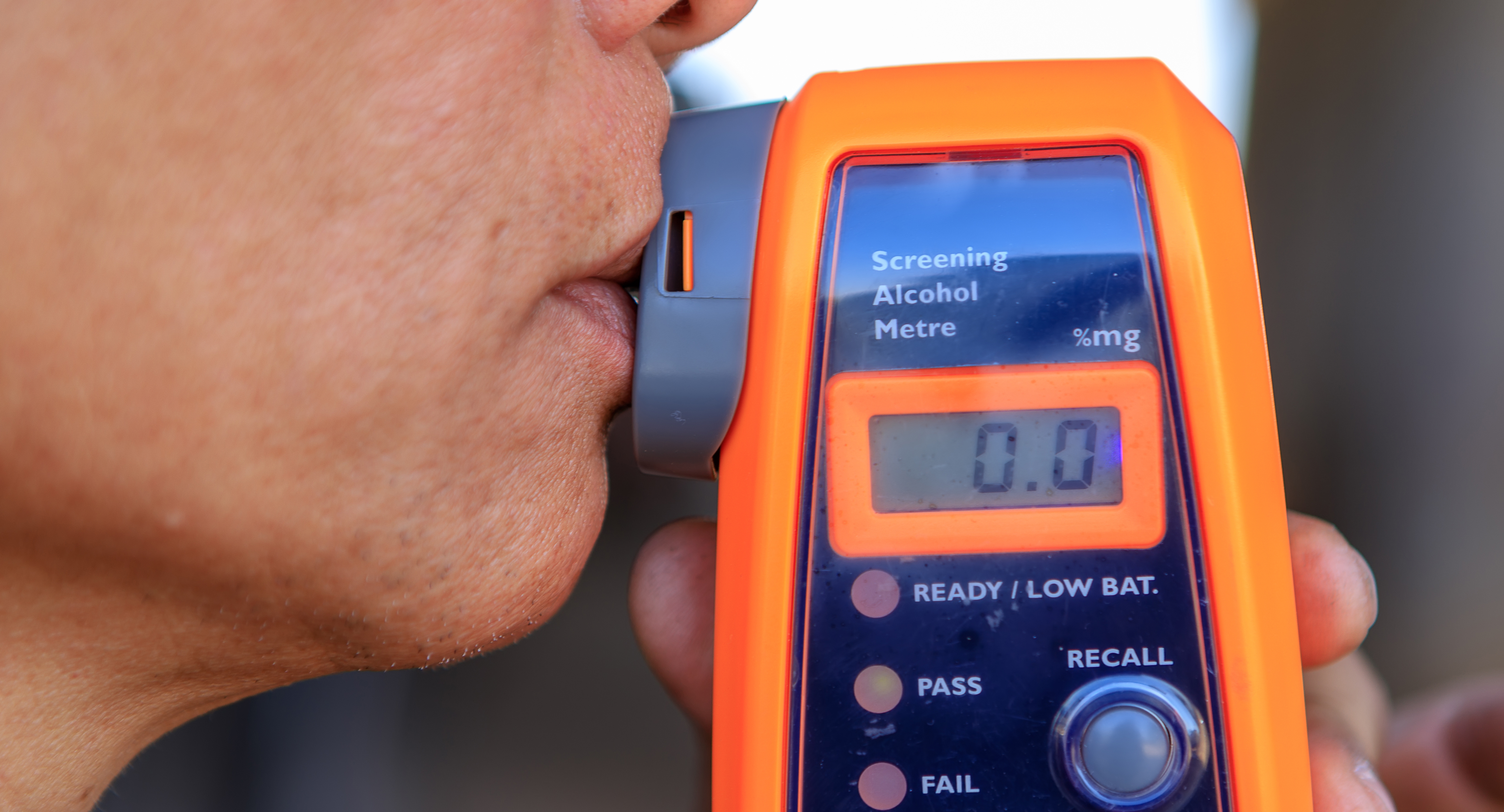Implied Consent is a Texas law that dictates that by accepting your driver’s license, you consent to BAC testing—if and when you are lawfully asked to submit a sample.
Legally, you can still refuse a breath or blood test, but it’s essential to be aware of the consequences. Generally speaking, it’s best to not consent to any type of test even if you think you are below the legal limit. Police can only use this evidence against you.
In this post, we’ll cover Texas’ implied consent law in-depth.
What Is Implied Consent?
In Texas, if a police officer has probable cause to believe you are driving or operating a watercraft while intoxicated, they can arrest you. At this point, they will probably ask you to submit to a breath, urine, or blood test to determine your BAC (blood alcohol content).
The Implied Consent law in Texas states that all drivers, by accepting a license, automatically consent to voluntarily provide a sample (or samples) under the above conditions.
Here’s what the Texas Implied Consent law looks like in the Texas Transportation Code:
“… (a) If a person is arrested for an offense arising out of acts alleged to have been committed while the person was operating a motor vehicle in a public place, or a watercraft, while intoxicated, or an offense under Section 106.041, Alcoholic Beverage Code, the person is deemed to have consented, subject to this chapter, to submit to the taking of one or more specimens of the person’s breath or blood for analysis to determine the alcohol concentration or the presence in the person’s body of a controlled substance, drug, dangerous drug, or other substance.”
Texas Transportation Code § 724.011
Can you Still Refuse?
By driving on public roads in Texas, you are deemed to have consented to BAC testing if you get arrested on suspicion of DWI. That said, you can withdraw this consent under most circumstances—though not without consequences.
Under normal circumstances, if you refuse to submit to BAC testing voluntarily, law enforcement officers must apply for a signed search warrant from a judge before they can take a sample by force. During “no refusal” weekends, the law remains the same, but police can access additional resources, including on-call judges outside of office hours and fast electronic search warrants.
Furthermore, no refusal policies mean that with probable cause, a police officer in Texas may not need a warrant to carry out a mandatory blood draw.
What Are No-Refusal Policies?
No refusal policies mean that even if you refuse to consent to a BAC test, police can still perform a mandatory blood draw. The policy applies under the following conditions:
- You are involved in a fatal or near-fatal accident, or an accident that has resulted in another person getting seriously injured, that the officer believes may have happened due to DWI.
- You had a child passenger in your car at the time of the suspected DWI.
- You have two previous DWI convictions.
- You have a previous conviction for DWI with a minor, intoxication assault, or intoxication manslaughter.
- You are unconscious and, therefore, deemed to have given consent according to the law (i.e., you cannot withdraw consent).
How Implied Consent is Applied During a Texas DWI Stop
During a typical DWI stop, the following steps will occur:
- Reasonable suspicion: A police officer spots erratic driving, your vehicle swerving, or running red lights and pulls you over.
- Probable cause: Upon the traffic stop, if the officer finds probable cause, including bloodshot eyes, open containers, the smell of alcohol, slurred speech, or if you fail a field sobriety test, they will put you under arrest.
- Breathalyzer: Sometimes, officers will ask you to blow on a portable Breathalyzer before they place you under arrest. If you refuse before getting arrested, you’re not breaking the Implied Consent law. However, your refusal could be used against you in court later.
- DWI arrest: Once under arrest, you will be taken to a mobile DWI unit or a police station, where you will be asked for a breath, blood, or urine sample. The police must inform you of the Texas Implied Consent law and explain the consequences of refusing the test.
- Search warrant: If you still refuse, the officer will apply for a search warrant signed by a magistrate judge. You will then be forced to give a blood sample so the State can determine if a DWI offense occurred.
You should seek advice from a DWI attorney as soon as possible, though you probably won’t be permitted to until after you have submitted a sample.
Penalties for Implied Consent Refusal in Texas
Refusing to give a breath or blood sample after being arrested on suspicion of DWI will trigger the ALR (administrative license revocation) program, and your license will be automatically suspended—though you will be given a temporary permit until the suspension period begins.
- For a first refusal, your license is suspended for 180 days.
- A second refusal results in a 2-year license suspension.
- To get your license back, a reinstatement fee of $125 applies.
You have 15 days from your arrest to request an ALR hearing, where your lawyer can fight for your right to retain your driving privileges and have the suspension lifted. While an ALR hearing isn’t directly related to a DWI trial, succeeding here will give you more of a chance with your criminal proceeding. It’s also a good opportunity for your DWI lawyer to gauge what evidence the State has against you and better prepare for your criminal trial.
While an Implied Consent violation can only affect your driving privileges, a DWI conviction can result in jail time, thousands of dollars in fines, and a permanent criminal record. You only have 15 days from the date of your arrest to request an ALR hearing. If you’re facing DWI charges, contact Michael & Associates today to start building your defense case.
The Best Strategy When You Don’t Adhere to Implied Consent in Texas
If you refuse to comply with BAC testing, your license will be confiscated.
You will have 15 days (from the day of your arrest) to request an ALR hearing and contest the revocation or suspension of your license.
If your blood was forcibly taken and your attorney can prove it was done without probable cause, your rights may have been violated. A DWI conviction can irrevocably change your life, and trying to navigate a trial without the help of an experienced lawyer will likely result in jail time, fines, and a permanent criminal record.
Here at Michael & Associates, we have a track record of success in DWI cases. Call to book your free case review today. Once we have reviewed your case, we’ll be able to offer advice on a strategy that’s tailored to your individual circumstances.




